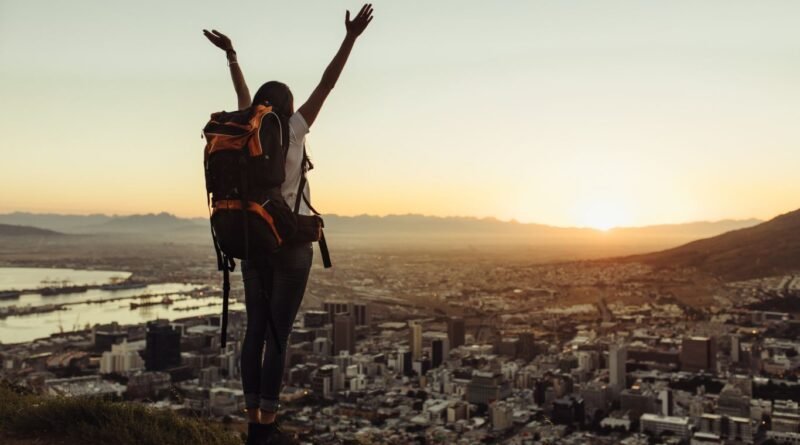Solo Travel: Tips For Planning A Safe And Enjoyable Trip
There’s an unmistakable sense of freedom that comes with planning your Solo Travel. The article “Solo Travel: Tips For Planning A Safe And Enjoyable Trip” is an empowerment guide that allows you to master the art of journeying alone. Through this piece, find practical advice on everything from selecting your dream destination to ensuring your safety throughout the journey. Unfurl the ropes of self-reliance and satiate your wanderlust with these indispensable tips for a safe and enjoyable solo trip.
Understanding the Appeals of Solo Travel
Solo travel can be a unique and enriching experience that captures the essence of absolute freedom, self-reflection, and personal growth. Venturing out into the world alone allows you to challenge yourself, interact with different cultures, make new acquaintances, and most importantly, learn about your capabilities and desires.
Discovering self-reliance
When you travel by yourself, you are the sole person responsible for making decisions about your journey. This fosters a sense of independence, as you learn to navigate new cities, use public transportation, and find your way around. As a solo traveler, you manage your travel itineraries, finances, and safety. This newfound autonomy helps develop trust in your abilities, enhancing your self-esteem and competence.
Opportunity for self-discovery
Solo travel is much more than a physical journey—it’s an internal voyage of self-discovery too. Without the influence or distraction of companions, your responses and reactions to various situations may surprise you. By taking time to introspect and understand your feelings and thoughts, you learn more about who you are and what you want in life.
Flexibility and freedom in itinerary
With solo travel, you have the flexibility to mold your itinerary according to your mood, tastes, and pace with no need for approval from companions. You can spend a whole day in a museum, taste street food, visit a music festival, enjoy a thrill ride, or choose to do nothing—it’s entirely up to you. Your travel plans are fluid, and you have the freedom to change them anytime.
Research Your Destination
Before embarking on your solo journey, it’s crucial to research your destination to help make your trip seamless and enjoyable.
Understanding the local culture
Familiarize yourself with the customs, traditions, and etiquette of your chosen destination. This understanding will help you respect the local culture, communicate better with the locals, and avoid any cultural faux pas. It also enriches your travel experience by helping you delve deeper into the lifestyle and values of the people.
Exploring visa requirements
Depending on your destination, you may need a visa. Thoroughly investigate visa requirements, application procedures, and processing times. Ensure that your passport is valid for an adequate duration, usually six months beyond your planned departure date.
Checking safety advisories
Before traveling, it’s wise to check the travel advisories issued by your government. These warnings give you an insight into the current local environment, including political instability, civil unrest, or health alerts, guiding you to make informed decisions about your travel plans.
Budgeting for Your Solo Travel
Planning your budget effectively ensures a worry-free trip.
Calculifying the daily travel costs
Work out the daily costs for accommodation, meals, transportation, entrance fees, activities, and other miscellaneous expenses. This calculation gives you a ballpark figure to aim for when saving for your trip.
Considering unexpected expenses
Always account for a buffer budget to cater for unforeseen expenses like health emergencies, changes in travel plans, loss of valuables, or currency fluctuation.
Keeping track of your spending
Keep a record of your expenses during your trip. This practice helps you manage your budget in real time and enables you to adjust your spending if required.
Preplanning and Booking Accommodation
One of the main aspects of travel planning is zeroing in on your accommodation.
Cherry-picking solo-friendly accommodation
Options like hostels, guesthouses, or bed and breakfast facilities are beneficial for solo travelers. They not only help you keep your travel budget intact but also provide opportunities for socializing with fellow travelers.
Using reliable booking platforms
Utilize trusted online booking platforms that offer accurate property descriptions, photos, policies, amenities, and pricing details. In addition, these platforms provide a secure payment gateway, offering you both convenience and peace of mind.
Checking the reviews and ratings carefully
Reviews from previous guests are a goldmine of information. They give you an insight into the pros and cons of the property, helping you make an informed decision. Pay attention to the ratings—the higher the score, the better the property.
Planning Your Itinerary
Having a sketch of your itinerary helps maintain a balance between adventure and relaxation on your trip.
Choosing your points of interest
Outline all the attractions and sights you want to visit. These could include historic landmarks, local markets, museums, scenic spots, trekking routes, or beaches.
Creating a flexible schedule
While a schedule is helpful, ensure it’s flexible so it doesn’t feel like a rigid routine. You should be able to add, remove, or swap attractions as per your mood, weather, or local events.
Consider incorporating rest days
Traveling constantly can get exhausting, so it’s important to schedule rest days. Use this time for leisure activities like strolling in a local park, visiting a spa, or just relaxing in a café to recharge your energy.
Manage Your Safety
As a solo traveler, managing your safety is paramount.
Staying alert of your surroundings
Always stay aware of your surroundings. Avoid isolated areas, especially at night and never disclose your accommodation details to strangers.
Keeping personal belongings secure
Keep your personal belongings like passport, money, and mobile devices secure. Use locks on your bags, and if possible, use hotel safes for storing valuables.
Trusting your instincts
Trust your gut feelings—it’s an instinctual early warning system. If something doesn’t feel right, walk away or seek help.
Staying Connected While Traveling
Staying connected throughout your journey provides reassurance to you and your loved ones.
Updating your loved ones about your whereabouts
Keeping your loved ones informed about your whereabouts assures them about your safety. Regular updates or a shared itinerary helps them track your journey.
Securing constant internet access
Internet connectivity is vital to access maps, transport schedules, hotel bookings, or emergency services. Consider investing in local SIM cards or global Wi-Fi devices.
Using GPS and location-based apps for directions
Utilize GPS and location-based apps to find your way around. These apps offer routes, estimated travel times, points of interest and help in navigating foreign locales.
Health and Wellness During Travel
Maintaining good health and wellness during your journey ensures an enjoyable trip.
Getting necessary vaccinations
Ensure you’re up-to-date with routine vaccines, and if required, get vaccinations specific to your travel destination. This prevents you from contracting local diseases.
Packaging a first aid kit
Carry a basic first aid kit containing band-aids, antiseptic creams, over-the-counter medicine for common ailments, rehydration salts, and any prescribed medication.
Staying hydrated and eating healthily
Drink plenty of fluids and eat balanced meals to maintain your energy levels. Stick to safe eating habits like eating well-cooked food and fresh fruits that can be peeled.
Learning Basic Local Language
Knowing a few local phrases can make your journey smoother and more enjoyable.
Learning hello’s, goodbye’s and thank you’s
Greeting people in their language usually earns a smile and encourages connection. Learn to say hello, goodbye, and thank you.
Understanding emergency phrases
Knowing how to ask for help, directions, or knowing phrases like “I’m lost” or “I need a doctor” can be enormously helpful.
Using translation apps for help
Use translation apps to ease communication hurdles. It aids in deciphering signs, menus, or conversations.
Coping with Loneliness
Traveling alone can sometimes lead to feelings of loneliness, but these can be managed by engaging in fulfilling activities.
Engaging in activities you love
Indulge in hobbies or activities you enjoy like photography, sketching, reading, or writing to pass your alone time meaningfully.
Connecting with locals and fellow travelers
Initiating conversations with locals or fellow travelers can lead to new friendships. Participate in group activities or tours to meet like-minded individuals.
Keeping something familiar around you
Carry something familiar from your everyday life, like your favourite book or music. These small comforts can feel grounding when you’re feeling homesick or alone.
Solo travel is a rewarding experience, brimming with opportunity for personal growth and adventure. With well-guided steps for planning, you can make your journey enjoyable, enriching, and memorable. Happy travels!




